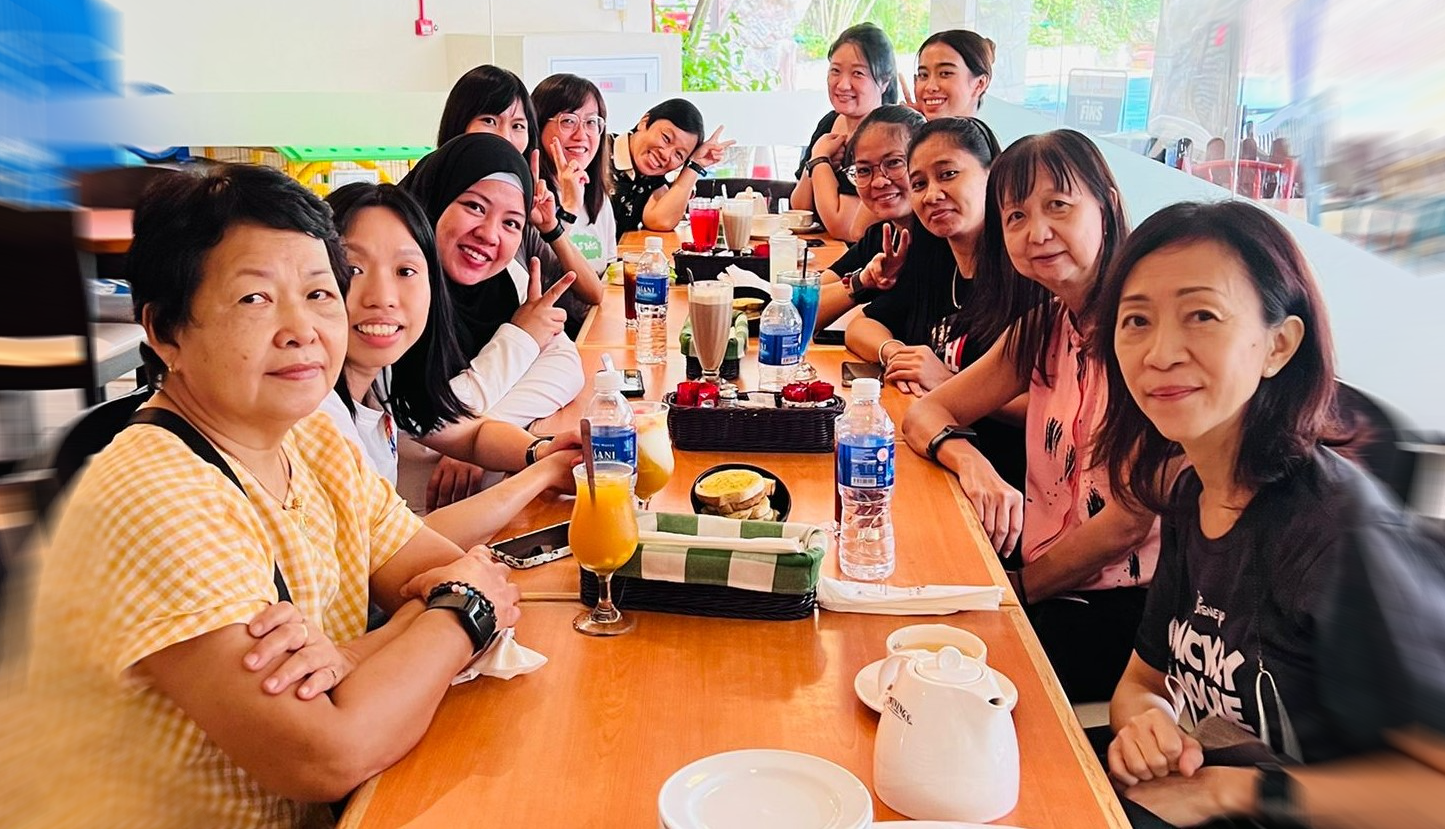

More than anything else, our experienced team of teachers truly loves children! They are the guiding light to the start of a lifelong journey of learning for your child and their dedication goes beyond teaching the curriculum. They are critical in imparting important values in every day life in a fun and enjoyable way, just like one big happy family!
Without them, we will be missing a lot of kampung spirit.
Suited up in protective equipment, Catherine Ong used to spend mornings working with live bacteria in a biosafety laboratory. She was part of the elite team at the Defence Medical and Environmental Research Institute (DMERI) studying potential biological weapons as part of Singapore’s national defence.
Her specialty: The bacteria Burkholderia pseudomallei, known to cause melioidosis, an infectious disease with symptoms such as fever, abscesses, lung infection, bloodstream infection and seizures.
This was highly specialised work. Ong spent more than 10 years getting her honours degree and PhD to qualify for the role. However, after contributing to research for 18 years, she abruptly resigned from her role as senior scientist to run Kids and Kins Child Care Centre in Ang Mo Kio.
Today, the PhD holder spends her days nurturing young children instead.
From scientist to pre-school director, what prompted Ong to make such a sharp career switch? The 45-year-old mother-of-three told CNA Women how her childhood and motherhood experiences shaped two very diverse and dynamic careers.
In secondary school, where most of her classmates aspired to be doctors and lawyers, Ong dreamt of becoming a botanist.
“I had a very happy childhood spent mostly in my grandparents’ kampungs. There were lots of animals to play with, blooming flowers, as well as durians, rambutans, custard apple and guava fruit trees. I grew up loving plants,” she said.
After her A-Levels, Ong naturally leaned towards studying botany, and cell and molecular biology at the National University of Singapore.
This baffled many of her junior college classmates. “One even asked out of concern if I was going to become a gardener at the Botanic Gardens after graduating,” she recalled.
Ong pushed forward with her dream and spent her undergraduate years memorising the Latin names of hundreds of plants, such as dendrobium crumenatum and melastoma malabathricum. Term breaks were spent in laboratories learning how orchid cells reproduce, and cloning orchid genes.
When she could not find any botany-related jobs after graduation, she joined the DMERI to study melioidosis, working on genomic sequencing, animal infection and environmental surveillance. This cutting-edge scientific work inspired Ong to study for her PhD under a company scholarship.
